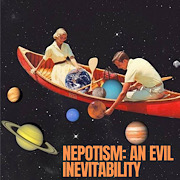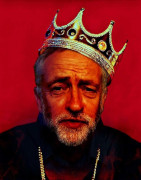|
khwarezm posted:From a few pages back, but I was reading Chris Clark's 'The Sleepwalkers'and he seemed to be of the belief that the empire was actually quite egalitarian by the standards of the day. Particularly in its administration and justice system it was apparently widely seen as blind to aspects of religion or race with many of the empires minorities happy about living under the Hapsburg justice system since it meant they were treated impartially, by and large people would get an education and a fair hearing in a courtroom (Roosevelt seemed to have a favorable view of the Austrian treatment of its constituent peoples in light of the American bloodletting in the Philippines). He contrasts this with contemporary Russia and the USA and also points to the fact that the empire was internally peaceful despite the constant bickering between various groups with no major wars, pogroms or ethnic cleansing, again contrasting with almost every state that surrounded it. For example Poles were much more comfortable in Austria than they were in Germany and Russia, and Bosnian Muslims weren't being killed and expelled like they were in Bulgaria or Serbia. If anything he says that many Serbs within the Empire were ambivalent at best about the prospects of uniting with a Serbia that was smaller, prone to violent instability, had way fewer economic prospects and a way worse education system. That sounds....odd. What's the line of argumentation here? Everything was kinda ok, because there wasn't a civil war or a genocide? Is there any word on major political conflict lines within the Empire or how political day to day business looked like? Written law is one thing, looks great on paper, but what matters is what people do with it (or if they chose not to do anything at all). Read about the parliament from 1900-1914. There's ofc not just the problems with nationalities, but another huge cleavage is the socialists vs. everyone else. The nobility did miss the signs of the time, but they're still very relevant in the military and administration, looking down and making GBS threads on everyone else. What about the jews? If there's no mention of that all, you can use the book to put your drinks on or for something else. Galicia is a point that comes up over and over, mostly in context with the jews that emmigrated from there. They're a special icon of hate for everyone, even the local jews. Late Austro-Hungaria is like a barfight everyone vs everyone, while the barkeeper (the Kaiser) is watching cynically and silently.
|
|
|
|

|
| # ? May 9, 2024 13:49 |
|
Much of this song is probably later (and its revival in the 1970s is definitely significant), but its oldest core is probably late 17th century. Note the promise of the first month's pay down flat as well as a sign-up/travel expenses bonus, which is standard throughout the 17th century. https://www.youtube.com/watch?v=cBGkhPx529g
|
|
|
|
For everyone defending 'plucky little Britain', how could the Nazis knock the UK out of the war, realistically?
|
|
|
|
Well a good start would have been launching Goering out of a cannon into the channel, preferably long before the war starts off course.
|
|
|
|
I don't think they had a cannon of that caliber. The man was morbidly obese.
|
|
|
|
JaucheCharly posted:I don't think they had a cannon of that caliber. The man was morbidly obese. Come now. http://en.wikipedia.org/wiki/Schwerer_Gustav
|
|
|
|
cheerfullydrab posted:For everyone defending 'plucky little Britain', how could the Nazis knock the UK out of the war, realistically? It's probably less about what the Nazis could have done, and more about the other elements not lining up right. Like not having a crazy stubborn arse like Churchill in charge, or someone as anti-Nazi as FDR and his administration in charge of the US. Edit: Ultimately the Germans expected the British to cave after the defeat of France. If the Germans didn't do Barbarrossa, and US support was not forthcoming, I think that is a reasonable expectation. I mean, there is little prospect of Britain winning, even if an invasion can be staved off, so for what purpose would the country hold out? Fangz fucked around with this message at 21:10 on Jun 9, 2014 |
|
|
|
cheerfullydrab posted:For everyone defending 'plucky little Britain', how could the Nazis knock the UK out of the war, realistically? Just because in reality they weren't likely to be imminently defeated does not mean it didn't feel that way at the time.
|
|
|
|
Caliber 80 centimetres. Never. Not even if they smear the barrel with K&Y
|
|
|
|
Raskolnikov38 posted:Well a good start would have been launching Goering out of a cannon into the channel, preferably long before the war starts off course. That, train the hell out of their anti-ship bombardment pre-Dunkirk causes a huge chunk of British and the French armies to be trapped or killed. I doubt you could knock the UK out of the war but you could definitely postpone D-Day, American or Soviet involvement means the war goes one way. CoolCab fucked around with this message at 21:15 on Jun 9, 2014 |
|
|
|
JaucheCharly posted:Caliber 80 centimetres. Never. Not even if they smear the barrel with K&Y Hmmm, two feet. That is narrow. We'll have to try a bombard. 
|
|
|
|
JaucheCharly posted:Caliber 80 centimetres. Never. Not even if they smear the barrel with K&Y Hey, at least you can grease him up enough to ease the head in, and the rest would form a tight plug. What were we talking about again?
|
|
|
|
my dad posted:Hey, at least you can grease him up enough to ease the head in, and the rest would form a tight plug.
|
|
|
|
Your minister of aviation is so fat, when he sits around the Reichstag, he sits around the Reichstag.
|
|
|
|
Fangz posted:Edit: Ultimately the Germans expected the British to cave after the defeat of France. If the Germans didn't do Barbarrossa, and US support was not forthcoming, I think that is a reasonable expectation. I mean, there is little prospect of Britain winning, even if an invasion can be staved off, so for what purpose would the country hold out?
|
|
|
|
steinrokkan posted:Your minister of aviation is so fat, when he sits around the Reichstag, he sits around the Reichstag. fat nazis say what
|
|
|
cheerfullydrab posted:For everyone defending 'plucky little Britain', how could the Nazis knock the UK out of the war, realistically? Exist in a universe where Halifax decided that his being in the House of Lords wasn't that big of a deal in the face of the national crisis and end up taking over as PM after Chamberlain instead of Churchill? That'd have done it. Alternatively, if you're looking for a pro-active German solution, assassinating Churchill in 1935 or so before he was all the way back out of the wilderness politically? Of course for that to work, you'd have to know ahead of time how much of a pain in the rear end he would be by 1940, be able to pull it off without getting caught and making old Winston a martyr to the anti-Nazi movement, and get lucky that no one as resolute as Churchill was ended up in power in the UK by the time you start the war. So yeah, that's a lot of risky time travel to get right. Once the war was in Churchill's hands? I guess if you somehow knock out Russia with Barbarossa in '41 then build up a navy and an air force sufficient to do a Reverse D-Day in 1947 while avoiding American involvement and especially American nukes? Maybe, but since it turned out that "knock-out Russia" thing was harder than it looked, maybe not. Or, I guess, you could not invade Russia in the first place? Though then you're putting yourself in the position of having to trust Stalin and that's rarely a good idea either. Launch Sealion with everything against you and pray? In short, no, there was no really easy way to take out the UK if the UK is in the hands of a dedicated leader like Churchill.
|
|
|
|
|
cheerfullydrab posted:For everyone defending 'plucky little Britain', how could the Nazis knock the UK out of the war, realistically? Without going too alt-history (plus we've discussed this before so I'll keep it short), and considering "knocking the UK out of the war" to be "eliminate the British Isles as a front and/or a serious threat to Nazi control of continental Europe": Accelerate deployment of drop tanks for the 109s, this results in the UK losing control of the air over nearly all of the UK. This means the RN is either attacked constantly by air, bottled up in Scapa Flow or moved to some other part of the Empire. This in turn means that the U-boats (and maritime aircraft) have free reign over the North Sea, the Celtic Sea, the Channel, etc. This would have likely caused American political opinion to swing strong against intervention in Europe, which means you now have isolated and blockaded home islands with no major allies still standing. The Sea Lion question is kind of irrelevant at this point; Germany doesn't need to invade anything as the UK is now a nonfactor in Europe. It can't be used as a bomber base, it can't be used as a staging point for an invasion of western Europe. UK forces cannot reinforce themselves in North Africa or the Middle East, and so on.
|
|
|
|
bewbies posted:Without going too alt-history (plus we've discussed this before so I'll keep it short), and considering "knocking the UK out of the war" to be "eliminate the British Isles as a front and/or a serious threat to Nazi control of continental Europe": Eh, you'd still have to contend with an airforce fighting close to its bases while yours are far away, its not an automatic win. Best case scenario is a Battle of Britain that stretches into 1941, which isn't necessarily to Germany's advantage.
|
|
|
|
JaucheCharly posted:That sounds....odd. What's the line of argumentation here? Everything was kinda ok, because there wasn't a civil war or a genocide? Considering how many late 19th/early 20th century states don't meet those criteria, it's not completely crazy.  Is there a good, readable summary you'd recommend of how the parliament worked (or didn't)? The impression I get is that a decent number of people recognized the situation was screwed up, had some ideas on what a better system would look like, but there was no viable path to actually get from point A to point B.
|
|
|
jng2058 posted:Exist in a universe where Halifax decided that his being in the House of Lords wasn't that big of a deal in the face of the national crisis and end up taking over as PM after Chamberlain instead of Churchill? That'd have done it. By this point Halifax completely despised Hitler. You know the whole Munich thing, plus in any case if Churchill is still alive he's going to be a senior member of the War Cabinet and arguing strenuously for the continuation of the war in which he'll likely have the support of the Liberal and Labour parties. At best (for the Germans) Halifax may negotiate a Treaty of Amiens style peace where he spends the next year or two gearing up for war before backstabbing Germany when it's balls deep in the USSR. Britain will absolutely not allow a single power to dominate the European mainland for very long and will given time strike back. bewbies posted:Without going too alt-history (plus we've discussed this before so I'll keep it short), and considering "knocking the UK out of the war" to be "eliminate the British Isles as a front and/or a serious threat to Nazi control of continental Europe": Simple so all the Luftwaffe needs to do is shoot down enemy fighters, escort friendly bombers, successfully bomb enemy radar installations, successfully crush British industry and perform anti-shipping strikes. It took the combined might of the RAF and USAAF 3 years to even put a serious dent in German war industry but Germany is going to achieve all this with a smaller airforce crapper planes and a poorer economy. And every month the Red Army (who are squatting on the lands the glorious master race needs) are getting stronger and stronger. Ferrosol fucked around with this message at 23:03 on Jun 9, 2014 |
|
|
|
|
bewbies posted:Without going too alt-history (plus we've discussed this before so I'll keep it short), and considering "knocking the UK out of the war" to be "eliminate the British Isles as a front and/or a serious threat to Nazi control of continental Europe": Wasn't the B-36 originally conceived with that sort of situation in mind? Would that have the potential to go nuclear in Germany's face? (as I understand the scenario you've got going, it's making things go generally Germany's way as a way for them to win, how much luck do you feel would be involved and how much would just be a natural consequence of the changes?) Bacarruda posted:To elaborate on what ArchangeI wrote. The Destroyers deal was Churchill's idea. In his first telegram to FDR in 1940, he asked for a "loan of 40 or 50 of your older destroyers,” desperately noting that Britain had “immediate need” of new warships. Britain had lost a good number of destroyers in Norway and the Atlantic and was in dire need of escort ships. Was there any value in making the US to some degree invested in the British colonial system? Also, even if they weren't capable enough to score many kills, what was the value of the four-stackers in deterring attacks by being able to increase the number of escorts on a convoy to get better coverage even if it wasn't great?
|
|
|
|
JaucheCharly posted:That sounds....odd. What's the line of argumentation here? Everything was kinda ok, because there wasn't a civil war or a genocide? Let me offer a few extracts from the book: quote:(concerning the 1867 compromise) There was little in the compromise to recommend it to the political elites of other national minorities, who had in effect been placed under the tutelage of the two 'master races'. The first post-compromise Hungarian prime minister, Gyula Andrassy captured this aspect of the compromise when he commented to his Austrian counterpart: 'You look after your Slavs and we'll look after ours'. The last decades before the outbreak of war were increasingly dominated by the struggle for national rights among the empires eleven official nationalities, Germans, Hungarians, Czechs, Slovenes, Croats, Serbs, Romanians, Ruthenians, Poles and Italians. How these challenges were met varied between the two imperial halves. The Hungarians dealt with their nationalities problem mainly by behaving as if it didn't exist. The kingdoms electoral franchise extended only to 6 percent of the population because it was pegged to property qualifications that favored Magyars... the three million Romanians of Transylvania, compromising 15.4 % of the population (of the Hungarian half) held only five of the Hungarian parliament's 400 odd seats. From the late 1870s, moreover, the Hungarian government pursued an aggressive campaign of 'Magyarisation', imposing the use of the Hungarian language in state and faith schools and taking harsh measures against ethnic minority activists. So far the usual story we're all acquainted with, he then details the bizarre language policies in Parliament where anyone could speak in any language they wanted and no interpreters were provided, taking filibustering to new and exciting heights to the point that the Austrian parliament turned into a tourist attraction. Various crisis for parliaments in both halves of the empire gripped it in its last years but then he changes track from the usual story that the AH was a tottering, unpopular mess doomed to failure: quote:In reality, the roots of Austria-Hungary's political turbulence went less deep than appearances suggested. There was, to be sure, intermittent ethnic conflict - riots in Ljubljana in 1908 for example or periodic Czech-German brawls in Prague - but it never came close to the levels of violence experienced in contemporary Russia or in twentieth century Belfast. As for the turbulence of the Cisleithanian parliament, it was a chronic Ailment rather than a terminal disease. The business of government could always be carried out under the emergency powers provided under clause 14 of the 1867 constitution. To a certain extent, moreover, different kinds of political conflict cancelled each other out. The conflict between Socialists, Liberals, Clerical Conservatives and other political groupings after 1907 was a boon to the Austrian part of the monarchy, because it cut across national lines and thereby undermined the virulence of nationalism as a political principal. So that's some of what he has to say, there is nothing on the conduct of the war in Serbia (since the book is about the outbreak of war) and little mention of Jews in the empire, but to be fair the Jews played little role in the ultimate splintering of the empire which is what he is trying to examine. I'll pull up some more stuff tomorrow such as Franz Ferdinand's goals and opposition to him as well as the situation in Bosnia if you want. khwarezm fucked around with this message at 23:40 on Jun 9, 2014 |
|
|
|
ArchangeI posted:Eh, you'd still have to contend with an airforce fighting close to its bases while yours are far away, its not an automatic win. Best case scenario is a Battle of Britain that stretches into 1941, which isn't necessarily to Germany's advantage. Of course it isn't an "automatic win", but the Luftwaffe came fairly close to achieving air superiority over southern England despite the poor range of the 109. "Best case" is certainly more than just a continuation of the Battle, they could have very easily destroyed Fighter Command had they fielded drop tanks and made some slightly better operational decisions. Ferrosol posted:Simple so all the Luftwaffe needs to do is shoot down enemy fighters, escort friendly bombers, successfully bomb enemy radar installations, successfully crush British industry and perform anti-shipping strikes. It took the combined might of the RAF and USAAF 3 years to even put a serious dent in German war industry but Germany is going to achieve all this with a smaller airforce crapper planes and a poorer economy. And every month the Red Army (who are squatting on the lands the glorious master race needs) are getting stronger and stronger. All the Luftwaffe needs to do in this scenario is maintain air superiority over the UK. I'm not sure where you're getting "war industry" from, or really why you think that the Allied strategic bombing campaign is in any way a comparable situation. xthetenth posted:Wasn't the B-36 originally conceived with that sort of situation in mind? Would that have the potential to go nuclear in Germany's face? (as I understand the scenario you've got going, it's making things go generally Germany's way as a way for them to win, how much luck do you feel would be involved and how much would just be a natural consequence of the changes?) Exactly, though the B-36 wasn't even drawn up until well after the Battle proper was over with and US intervention in Europe was all but assured in one form or another. I'd argue that had Britain been effectively blockaded and capped off that the US will to intervene in Europe at all would have been in serious question, which probably would have precluded both a continental bomber project and the bomb itself. As for "luck", the only real changes I'd make to the actual history are 1) drop tanks for the 109, and 2) alter the Luftwaffe's targeting to focus solely on SEAD. The second point is actually probably even of debatable importance. bewbies fucked around with this message at 23:24 on Jun 9, 2014 |
|
|
|
khwarezm posted:...he then details the bizarre language policies in Parliament where anyone could speak in any language they wanted and no interpreters were provided, taking filibustering to new and exciting heights...
|
|
|
|
HEY GAL posted:Nope, sorry, this owns. Yeah its pretty funny, apparently a few Ukrainians or whatever could just drone on and on for hours in a language that no-one else could comprehend and block anything from happening. They didn't even have to about any issues being discussed since no-one understood what was being said so they could just recite national poetry or discuss their appreciation for Anime for all anyone knew. Regular people crowded the galleries to watch parliamentary politics poo poo itself in a hilarious way (Hitler claimed it was here that he lost faith in the parliamentary process).
|
|
|
bewbies posted:Of course it isn't an "automatic win", but the Luftwaffe came fairly close to achieving air superiority over southern England despite the poor range of the 109. "Best case" is certainly more than just a continuation of the Battle, they could have very easily destroyed Fighter Command had they fielded drop tanks and made some slightly better operational decisions. You wrote that the job of the Luftwaffe was to maintain air-superiority over the UK. To do that they're going to need at minimum to shoot down enemy fighters and use bombers to disrupt the airfields, radar stations and AA sites. Now unless the Luftwaffe is so godly that it manages to shoot down every single UK fighter immediately those bombers are going to be a prime target for attacks by the remaining UK fighter force and so are going to need escorts which is more resources. Meanwhile british factories are pouring out more planes the Commonwealth Air Training Scheme is coming online to provide pilots from Canada and Australia, the British and French orders from the Americans for new planes are being delivered and Germany's increasingly tired and battered Luftwaffe thinks it's eliminated the RAF 3 times over but still can't work out where all this new stuff is coming from because the entire German intelligence service is run by outright incompetents or traitors. And remember all this is taking place after the Luftwaffe has lost a quarter of it's strength over France and is operating from makeshift airfields on the french coast. Also prevent the Royal Navy from interfering with submarine and surface raiders,with what? there were at best a handful of squadrons trained in anti-shipping strikes and even in the perfect conditions at Dunkirk the Germans only managed to sink 9 destroyers and that was with complete air supremacy and attacking targets that were sitting ducks.
|
|
|
|
|
Ferrosol posted:You wrote that the job of the Luftwaffe was to maintain air-superiority over the UK. To do that they're going to need at minimum to shoot down enemy fighters and use bombers to disrupt the airfields, radar stations and AA sites. Now unless the Luftwaffe is so godly that it manages to shoot down every single UK fighter immediately those bombers are going to be a prime target for attacks by the remaining UK fighter force and so are going to need escorts which is more resources. Meanwhile british factories are pouring out more planes the Commonwealth Air Training Scheme is coming online to provide pilots from Canada and Australia, the British and French orders from the Americans for new planes are being delivered and Germany's increasingly tired and battered Luftwaffe thinks it's eliminated the RAF 3 times over but still can't work out where all this new stuff is coming from because the entire German intelligence service is run by outright incompetents or traitors. And remember all this is taking place after the Luftwaffe has lost a quarter of it's strength over France and is operating from makeshift airfields on the french coast. You are badly overestimating the UK's aircraft manufacturing base and in particular pilot training capacity in 1940. As for the Luftwaffe's anti shipping record, we had an extended discussion about this not that long ago in this thread and I'm not keen to type it all out again, but I'd suggest you examine closely what happened to Channel shipping in the late spring/early summer of 1940. bewbies fucked around with this message at 00:00 on Jun 10, 2014 |
|
|
|
HEY GAL posted:Secondly, while the Battle of Rocroi frequently used to be called the death knell of Spanish tactics, HEY GAL posted:Edit: They weren't "shelled into compliance," either, they received unusually generous terms when they surrendered, the same that would have been given to a surrendering fortress, which I think meant that their opponents respected what they had done. Drums beating, flags flying, music playing, and musketeers with lit match and with a bullet in each man's mouth, to say "We can still fight if we please, we simply choose not to." She also doesn't mention this at all, giving the impression the Spanish were all either killed or captured. Which is weird since it's not only an important detail, but a
|
|
|
|
P-Mack posted:I just got up to this part in Wedgwood, and she literally calls it the "gravestone of the Spanish army." While Wedgewood is good and I still cite her as the best short introduction to the war (Peter Wilson can overwhelm the neophyte with a big soup of details, and he has less of an eye for the individual person; Geoffrey Parker's book is too dry), she's still an early 20th century thinker, and one of the things where they differ from us is the idea that Spain is hopelessly backward and doomed to decay (or, for that matter, that the Netherlands and Sweden are hyper-advanced) during this period. Edit: The match wouldn't have been in their mouths, it would have been either in their non-dominant hands (where you hold it when priming and loading) or gripped into the, uh, match-holding-things (which would have been symbolic of readiness while not actually allowing them loaded weapons). I don't know which. All I know is, that's what the defeated is allowed to do in the best kind of surrender. Edit 2: Rocroi is their high water mark, but in my opinion it's because of bad finance and bad governmental decisions, not bad tactics; Spain can still win battles, but that is no longer the issue. If it's the gravestone of the Spanish army, the stone was quarried in Madrid. HEY GUNS fucked around with this message at 02:25 on Jun 10, 2014 |
|
|
|
When you look back at the Battle of Britain, Britain was getting bombed anyway. If the Nazi Bomber command focused on hitting production and their Fighter command pushed for longer range escorts it probably could have bled Britain dry albeit with one hell of a price paid. Whether that would have precluded America from entering the war is unknown. They still had homeboy Stalin with hat in hand, it wasn't like Britain was the only major ally on the continent.
|
|
|
|
Mojo Threepwood posted:I appreciate the responses to my questions, I seriously learn more from this thread than any other source except maybe Dan Carlin's podcasts. To answer your question about why I thought there was a consensus, I got this impression from reading a number of posts (usually in response to a counter-factual proposal) that would point out how doomed the Confederacy and Axis powers were. The consensus isn't quire so broad, and is limited to military matters. There's no reasonable way for the CSA to militarily win its independence; only by making the conflict politically unsustainable in the north could that have happened. That's why the 1864 election ends up being so important. In World War 2, you encounter a fairly similar situation.
|
|
|
|
bewbies posted:This in turn means that the U-boats (and maritime aircraft) have free reign over the North Sea, the Celtic Sea, the Channel, etc. This would have likely caused American political opinion to swing strong against intervention in Europe, This is the main thing I don't understand about your scenario. Why would a drastically more aggressive anti-shipping campaign by the Germans make the USA less likely to intervene, as opposed to more likely since it would probably involve attacks on American-flagged and -owned shipping, even if only by mistake?
|
|
|
|
EvanSchenck posted:This is the main thing I don't understand about your scenario. Why would a drastically more aggressive anti-shipping campaign by the Germans make the USA less likely to intervene, as opposed to more likely since it would probably involve attacks on American-flagged and -owned shipping, even if only by mistake? I thought this too at one point. I was pretty surprised to find out that no American flagged ships were sunk by the Kreigsmarine prior to late 1941 (it is kind of funny who was doing the vast majority of the "detaining" of American merchants during this time period). This gives you a good idea of how convoys were comprised by flag, most were British and the rest from around Europe or the Caribbean. Point being, American merchants were pretty deliberately avoided and/or skipped by the Germans, and for good reason, and American merchants really weren't actively participating in the UK supply convoys at the point in the war. I don't really think that even in the case of a true blockade that American shipping would have been targeted much if at all. Regarding the effects of this on policy, American public opinion regarding European intervention in 1939-40 was extremely negative, between 70 and 80% depending on the polls you look at. Then, as now, a consensus of that magnitude that is pretty rare; that plus a handful of regulations were why Roosevelt's hands were so tied regarding intervention prior to Pearl Harbor. I'm proposing that a situation wherein Britain looked "doomed" or was otherwise seriously reduced by Germany that both US law and US public opinion wouldn't have supported any sort of substantial official support to Britain. bewbies fucked around with this message at 02:24 on Jun 10, 2014 |
|
|
|
I'm just a history amateur (if even that) and lurker on this thread and I know you guys don't like to get into alternate history too deeply, but would the Soviets have a shot at winning WW2 if the US had never entered the war? I mean, say they keep helping in a proxy way, but not going all in with troops.
|
|
|
|
Pharmaskittle posted:I'm just a history amateur (if even that) and lurker on this thread and I know you guys don't like to get into alternate history too deeply, but would the Soviets have a shot at winning WW2 if the US had never entered the war? I mean, say they keep helping in a proxy way, but not going all in with troops. Back up a few pages, we were just arguing about this. The answer is yes, but more people would have died and the Soviets would control almost all of Europe.
|
|
|
|
Pharmaskittle posted:I'm just a history amateur (if even that) and lurker on this thread and I know you guys don't like to get into alternate history too deeply, but would the Soviets have a shot at winning WW2 if the US had never entered the war? I mean, say they keep helping in a proxy way, but not going all in with troops. Yes. By the time America made significant contributions to the war Moscow had been saved and the darkest hour for the Soviets had already passed. Without US help, Soviet victory would have come later and at even more horrific cost, but it still would have come.
|
|
|
|
bewbies posted:You are badly overestimating the UK's aircraft manufacturing base and in particular pilot training capacity in 1940. You're right that pilots were crucial bottleneck. The Czechs, the Poles, and other Allied and Commonwealth pilots helped alleviate this somewhat, but the RAF was still desperate for pilots. But British aircraft production output was actually pretty good, all things considered. Beaverbrook was some kind of mad genius at building planes and by August 1940, the British were outproducing the Germans 2.5 to 1. And that's not counting what the British are buying from abroad. bewbies posted:Regarding the effects of this on policy, American public opinion regarding European intervention in 1939-40 was extremely negative, between 70 and 80% depending on the polls you look at. Then, as now, a consensus of that magnitude that is pretty rare; that plus a handful of regulations were why Roosevelt's hands were so tied regarding intervention prior to Pearl Harbor. The American public was pretty set against direct military intervention during 1940 and 1941. But there were loads of Americans who were fine with intervening through aid programs like Destroyers for Bases and various other policies that stretched US "neutrality" very thin indeed. Public pressure groups like the Committee to Defend American by Aiding the Allies enjoy substantial support. Americans still want to sit on the sidelines of the war, but most Americans want the government to do everything it can to help the British win. And many Americans were willing to support these programs even if it meant risking getting into war with Germany. Which in a way it did, since Hitler mentions US aid to the Allies as one of the reasons for his December 1941 declaration of war on the United States. http://ibiblio.org/pha/Gallup/Gallup%201940.htm
|
|
|
Pharmaskittle posted:I'm just a history amateur (if even that) and lurker on this thread and I know you guys don't like to get into alternate history too deeply, but would the Soviets have a shot at winning WW2 if the US had never entered the war? I mean, say they keep helping in a proxy way, but not going all in with troops. Define "entered". If you mean "not involved at all"? Probably not. The material assistance from Lend-Lease was critical to the USSR's survival. If you mean "no direct USA-Germany war, but the Russians still get tons of American war material"? I'd say more than a shot, I think the USSR is still the favorite to win. It may take longer, maybe it goes on to late summer or fall of '45 or even spring of '46, but the American contributions in North Africa weren't worth more than a handful of Nazi divisions in 1942, and from '43 on the Russians had pretty much turned it around, D-Day or no D-Day. American involvement was critical for the post-war era, though. Because without a western military force in situ, there's a lot of reason to suspect that Stalin wouldn't have quit driving west until he'd "liberated" all of Europe to the Channel. And that would have led to a very different Cold War.
|
|
|
|
|

|
| # ? May 9, 2024 13:49 |
|
jng2058 posted:Define "entered". If you mean "not involved at all"? Probably not. The material assistance from Lend-Lease was critical to the USSR's survival. If you mean "no direct USA-Germany war, but the Russians still get tons of American war material"? I'd say more than a shot, I think the USSR is still the favorite to win. It may take longer, maybe it goes on to late summer or fall of '45 or even spring of '46, but the American contributions in North Africa weren't worth more than a handful of Nazi divisions in 1942, and from '43 on the Russians had pretty much turned it around, D-Day or no D-Day. Not even war material per se, but trucks were one of the most important components of Lend-Lease. If the Soviets had to choose between getting American trucks vs. the entire contribution of the American army, the correct decision would have been the trucks and it's not even particularly close.
|
|
|



































